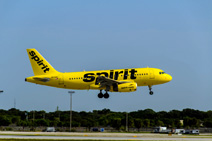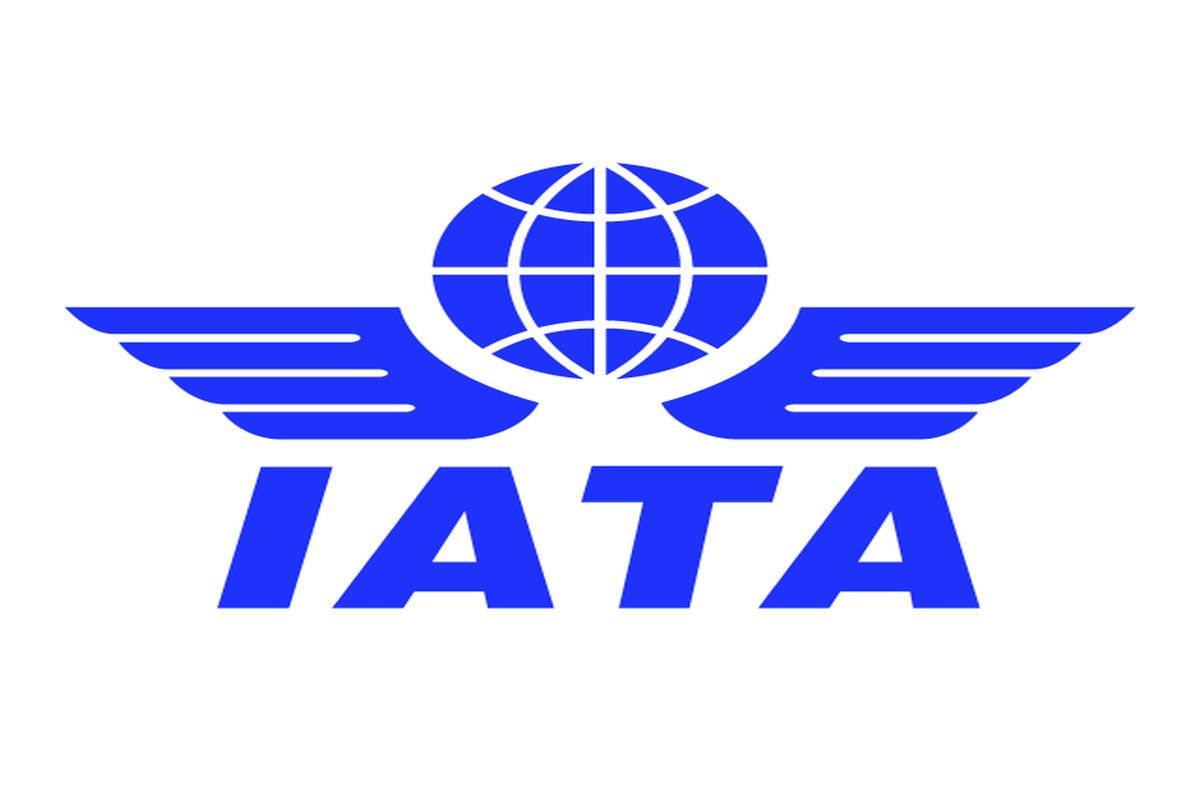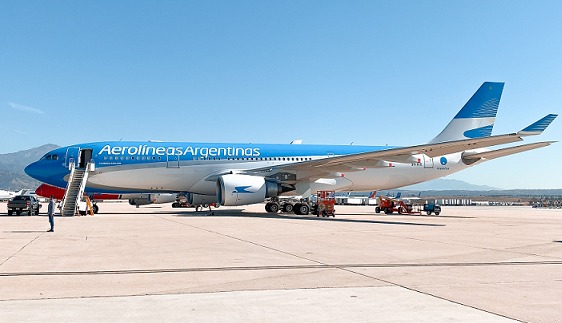Fuente: Spirit Airlines
Spirit Airlines, Inc. («Spirit» o la «Compañía») anunció que su Junta Directiva (la «Junta»), en consulta con asesores financieros y legales externos, ha determinado por unanimidad que la propuesta no solicitada recibida de JetBlue Airways («JetBlue») (NASDAQ: JBLU) no constituye una ‘Propuesta superior’ según se define en el acuerdo de fusión de Spirit con Frontier Group Holdings, Inc. («Frontier»), empresa matriz de Frontier Airlines, Inc., porque ha determinado que la transacción propuesta no es razonablemente capaz de consumarse. La Junta sigue creyendo que la transacción pendiente con Frontier representa la mejor oportunidad para maximizar el valor y recomienda que los accionistas de Spirit adopten el acuerdo de fusión con Frontier. La Junta Directiva de Spirit también envió una carta a JetBlue.
“Spirit sigue creyendo en la lógica estratégica de la fusión propuesta con Frontier y confía en que representa la mejor oportunidad para maximizar el valor a largo plazo para los accionistas. Después de una revisión exhaustiva y un extenso diálogo con JetBlue, la Junta determinó que la propuesta de esta última empresa implica un nivel inaceptable de riesgo de cierre que sería asumido por los accionistas de Spirit. Creemos que nuestra fusión pendiente con Frontier iniciará un nuevo y emocionante capítulo para Spirit y brindará muchos beneficios a los accionistas, miembros del equipo e invitados de Spirit”, dijo Mac Gardner, Presidente de la Junta Directiva de Spirit Airlines.
Como se anunció previamente el 7 de febrero de 2022, Spirit celebró un acuerdo de fusión con Frontier, en virtud del cual ambas aerolíneas se combinarían en una transacción de acciones y efectivo. Según los términos del acuerdo de fusión, los accionistas de Spirit recibirían 1,9126 acciones de Frontier más US$2,13 en efectivo por cada acción de Spirit existente que posean.
La Compañía continuará avanzando para completar la transacción con Frontier, que se espera que se cierre en la segunda mitad de 2022. La transacción está sujeta a las condiciones de cierre habituales, incluida la finalización del proceso de revisión regulatoria en curso y la aprobación de los accionistas de Spirit.
El texto completo de la carta ya citada en inglés es el siguiente:
May 2, 2022
Robin Hayes
Chief Executive Officer
JetBlue Airways Corporation
27-01 Queens Plaza North
Long Island City, NY 11101
Dear Mr. Hayes:
We have reviewed JetBlue’s updated proposal dated April 29, 2022, with Spirit’s Board of Directors and its legal and financial advisors. Our Board has unanimously determined that JetBlue’s proposal does not constitute a “Superior Proposal” under Spirit’s existing merger agreement with Frontier.
As you know, a “Superior Proposal” under the Frontier agreement must, among other requirements, be “reasonably capable of being consummated.” Spirit’s Board believes JetBlue’s proposal falls short of that standard. Our conclusion is based on careful analysis of the competitive implications of a combination of JetBlue, which analysis has been informed by extensive discussions between our respective antitrust advisors and economic consultants over the past four weeks. During that period, Spirit has also discussed projections with your financial advisers and provided voluminous documentary due diligence material through a secure virtual data room.
We believe a combination of JetBlue and Spirit has a low probability of receiving antitrust clearance so long as JetBlue’s Northeast Alliance (NEA) with American Airlines remains in existence. The U.S. Department of Justice (DOJ), along with Attorneys General in six states and the District of Columbia, have sued to block the NEA, alleging that the alliance “will not only eliminate important competition in [Boston and New York City], but will also harm air travelers across the country by significantly diminishing JetBlue’s incentive to compete with American elsewhere, further consolidating an already highly concentrated industry.”1 As you know, Spirit and many other airline and air travel constituencies have publicly opposed the NEA on grounds that it is anticompetitive. We struggle to understand how JetBlue can believe DOJ, or a court, will be persuaded that JetBlue should be allowed to form an anticompetitive alliance that aligns its interests with a legacy carrier and then undertake an acquisition that will eliminate the largest ULCC carrier.
We further believe that your divestiture proposal is unlikely to resolve DOJ’s concerns about a combination of Spirit and JetBlue if the NEA continues in existence. DOJ clearly views the NEA as having a broader national effect and Spirit believes DOJ will not place great weight on your proposed remedy, especially because there are reasons to doubt the efficacy of similar divestitures as a remedy in past airline mergers.
Moreover, in evaluating a JetBlue-Spirit combination, Spirit believes DOJ—and a court—will be very concerned that a higher-cost/higher fare airline would be eliminating a lower-cost/lower fare airline in a combination that would remove about half of the ULCC capacity in the United States. In addition, the conversion of Spirit aircraft to JetBlue configuration will result in significantly diminished capacity on former Spirit routes, also resulting in higher prices for consumers. Finally, we are skeptical about your claims regarding the so-called “JetBlue Effect.” After receiving the summary output of your economic model from your advisers, Spirit’s economic consultants identified reasons to doubt that such an effect would significantly exceed any similar “ULCC effect.”
In contrast, Spirit believes that merging with Frontier will enable the combined ULCC business to achieve scale, improve operational reliability, have increased relevance to consumers, and do an even better job of delivering ultra-low fares to more consumers and competing more effectively against the Big 4 carriers, as well as against JetBlue. We believe that is a clear, pro-consumer narrative that will resonate more successfully with DOJ than a combination with JetBlue, which would eliminate the largest ULCC and remove significant low-cost/low-fare capacity.
Spirit took note of the fact that the JetBlue proposal allocates most of the very substantial deal completion risk to Spirit stockholders. To reduce that risk and achieve a more appropriate balance of the risk between our companies, in our April 25 response Spirit proposed a strong covenant requiring JetBlue to take any action required to obtain regulatory clearance, which specifically included abandoning the NEA at closing. We also proposed a substantial reverse termination fee intended to partially compensate Spirit if the transaction failed to win antitrust clearance. On that score, in the event of a failure or abandonment of a JetBlue-Spirit combination, even a high reverse termination fee will not fully compensate Spirit stockholders for the likely significant business erosion Spirit will face during what will be a protracted approval process.
Spirit does not consider JetBlue’s April 29 response to be appropriately responsive to Spirit’s concerns. Indeed, that response makes clear that JetBlue is unwilling to terminate the NEA – or to agree to any other remedies that might materially decrease the expected benefits to JetBlue from the NEA – to obtain clearance for an acquisition of Spirit. The transaction you describe in your April 29 response not only fails to meet the required standard under the Frontier merger agreement but, by prioritizing the NEA over the steps we believe would be necessary to have any realistic likelihood of obtaining antitrust clearance, it imposes on our stockholders a degree of risk that no responsible board would accept. Given this substantial completion risk, we believe JetBlue’s economic offer is illusory, and Spirit’s board has not found it necessary to consider it.
Very truly yours,
- McIntyre Gardner
Chairman of the Board
Edward M. Christie, III
Chief Executive Officer
1See Press Release, United States Department of Justice, Justice Department Sues to Block Unprecedented Domestic Alliance Between American Airlines and JetBlue (Sept. 21, 2021), available at https://www.justice.gov/opa/pr/justice-department-sues-block-unprecedented-domestic-alliance-between-american-airlines-and .
Barclays y Morgan Stanley & Co. LLC se desempeñan como asesores financieros de Spirit, y Debevoise & Plimpton LLP y Paul, Weiss, Rifkind, Wharton & Garrison LLP se desempeñan como asesores legales.



